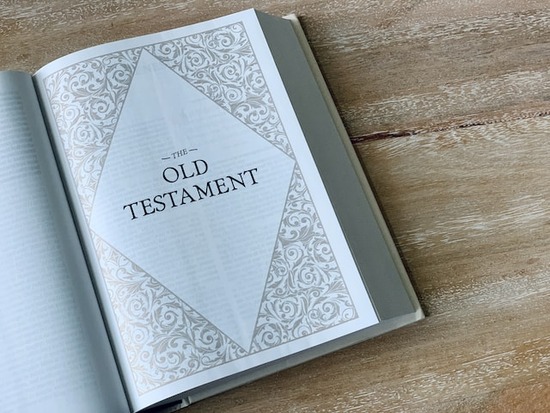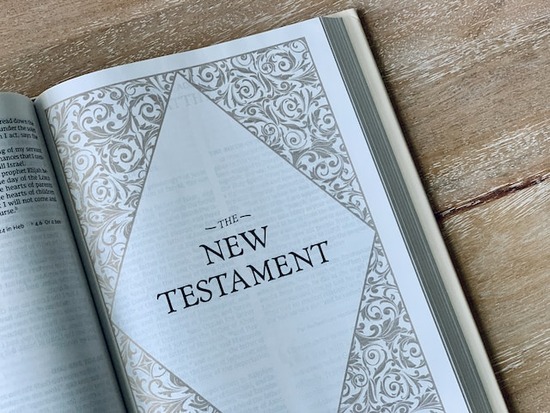Sabbath Keeping: What It Looks Like in the Bible
Throughout the Word of God, we find examples of people who kept the Sabbath, both in the way God intended and the way He didn’t intend.
His intention?
That Sabbath would not be about a checklist of rules but about a mindset of rest. It’s a day to set aside daily cares and connect with God, our creator. Out of our love for Him, we take the principles of the Bible and apply them in the way we keep the Sabbath.
But have you ever found it hard to know how to apply the principles of the Bible?
By seeing how biblical characters treated God’s holy day, we can gain some insight on how we ourselves should apply the principles and treat this special day. Yes, time and circumstances can change, but these examples still provide us with valuable guidance.
In this article, we’ll take a look at:
- People who kept the Sabbath holy
- People who broke the Sabbath
- What these examples teach us about keeping God’s Sabbath
First, let’s look at the experiences of people who kept the Sabbath as God intended.
People who kept the Sabbath holy

Photo by Tim Wildsmith on Unsplash
The Bible gives us numerous examples of people keeping the seventh-day Sabbath in a way that drew them closer to God and allowed them to enjoy it as a day of rest.
The first example comes from the beginning of the Bible when God first created the earth.
Old Testament examples
The first Sabbath ever kept took place in Genesis, when God dedicated the day to rest. Genesis 2:2–3 says,
“And on the seventh day God ended His work which He had done, and He rested on the seventh day from all His work which He had done. Then God blessed the seventh day and sanctified it, because in it He rested from all His work which God had created and made” (NKJV).
God had just finished creating the world and it was time for Him to take a break. God does not get tired in the same way that we do, but He rested on the seventh day of the week to demonstrate how we as humans would benefit from this pattern of work and rest.
Even if we don’t need physical rest, per se, God saw that we needed a day to let all the worries and other problems slip from our minds so we could have time to spend with Him.
It’s like a time you set up to hang out with a friend. You use that time to get to know your friend better.
And we use the Sabbath to get to know God better.
Later, not long before God gave the law—the Ten Commandments—to Moses and the Israelites at Mount Sinai (Exodus 20:2–17), He gave them a visual reminder of Sabbath keeping through the food He provided them.
The Israelites had left Egypt for Canaan, and in their journey through the wilderness, food was scarce. To provide for such an enormous assembly of people, God rained manna—a small wafer-like substance—for the Israelites to gather up (Exodus 16:14).
It appeared on the ground every morning—except for the seventh day.
A double amount fell on Friday to provide for both Friday and Sabbath.
God instructed them:
“Tomorrow is a Sabbath rest, a holy Sabbath to the Lord. Bake what you will bake today, and boil what you will boil; and lay up for yourselves all that remains, to be kept until morning” (Exodus 16:23, NKJV).
But unlike the manna of all other days, the extra gathered on Friday didn’t spoil before Sabbath.
By trusting in God to provide for them and having the foresight to gather two days’ worth on Friday, the Israelites were observing the Sabbath the way God designed it to be—resting from unnecessary work and other daily activities so they could spend time with Him.
The prophet Isaiah reminded the Israelites of the benefits of taking a day to focus on God: greater joy and closeness to God (Isaiah 56:6-8).
Isaiah called it a “delight” (Isaiah 58:13)—something to look forward to and enjoy. We all enjoy taking a break from our busy schedules, and we all enjoy spending time with a friend. This is the essence of Sabbath: pausing from our normal schedules to rest with God.
And it’s how God intended us to view the Sabbath.
If your job is frustrating you or you’re worn out from a crazy schedule, the Sabbath is a delightful break from all that, allowing you to rest physically and mentally and direct your thoughts toward building a relationship with Jesus Christ.
And even if your life isn’t crazy or chaotic, the Sabbath still provides a rhythm of rest and work, as well as a specified space of time for God and those you love.
Jesus saw the importance of this day too.
Jesus’ example
The Gospels are peppered with instances of Jesus keeping the Sabbath, as was His custom (Luke 4:16).
Jesus often healed people on the Sabbath, much to the dismay of the Jewish rulers. They considered His works of healing as breaking the Sabbath. But they really cared more about their rules than people. They misunderstood the Sabbath commandment, and Jesus had come to help them understand its true purpose.
Matthew 12:9–13 is a prime example of Jesus healing on the seventh day. While in the synagogue, He healed a man with a withered hand.
Another time, Jesus healed a paralyzed man (John 5:1–18). And John 9 records Jesus mixing clay to heal a blind man on the Sabbath.
Jesus also cast out demons on Sabbath. One man in Luke was afflicted by a demon—in the synagogue, no less—and Jesus commanded it to come out. It did.
Afterward, He went to Peter’s house and healed his mother, who was sick (Luke 4:33–39).
Besides healing, Jesus used the day of rest to teach the people about Himself. In Luke 4:31, Jesus taught the people on “many Sabbaths.” Mark 6:2 also mentions him teaching in the synagogue in his hometown of Nazareth.
Mark’s Gospel records a story in which Jesus and His disciples were hungry on the Sabbath. As they walked through grain fields, they plucked the heads off and ate them (Mark 2:23–28). They weren’t trying to harvest the grain, or work, although the pharisees accused them of this. They were simply picking a little to calm their hunger—a normal Jewish custom on any other day.
Although Sabbath is a day of rest from our regular work, Jesus, as Lord of the Sabbath (Mark 2:28), clearly showed we don’t have to stop everything.
Sabbath is meant to be a day of delight—not suffering. Thus, we don’t have to refrain from activities that meet basic needs, like heating up food for a meal or taking care of pets. We just don’t want to get so involved that we get distracted from the time we could spend with God.
Let’s look at some other examples of Sabbath keepers in the New Testament.
Other New Testament examples

Photo by Tim Wildsmith on Unsplash
The New Testament brings us to the time of the Jews, who lived a few hundred years after the close of the Old Testament. Within the Jewish culture, the pharisees, religious leaders of the time, had become especially concerned about their rules—as we saw in their encounter with Jesus (mentioned above).
However, despite the misunderstandings about the Sabbath and the legalistic example set by the pharisees, Jesus’ disciples followed His example in keeping the Sabbath.
One of the most prominent instances happened at Jesus’ death. Jesus was crucified on Friday afternoon, and because Sabbath begins at sunset on Friday, He was taken and buried in a tomb before then.
The book of Luke adds that the women who followed Jesus also observed the Sabbath. Luke 23:54–56 says,
“That day was the Preparation, and the Sabbath drew near. And the women who had come with Him from Galilee followed after, and they observed the tomb and how His body was laid. Then they returned and prepared spices and fragrant oils. And they rested on the Sabbath according to the commandment” (NKJV).
They waited till Sunday to do the embalming. Even though Jesus had died, they kept the Sabbath holy like He would have if He was alive. And thus, they demonstrated that the Sabbath was not changed from the seventh day to the first day (Sunday).
Even after Jesus had risen and ascended back into heaven, the early Christians continued to keep the Sabbath holy. The book of Acts records many times that they kept the Sabbath.
Paul preached on Sabbath many times. In Acts 13, he went to the synagogue on Sabbath and preached to the Jews gathered there. The Gentiles, non-Jews, who heard him were so impressed that they asked Paul to preach to them again next Sabbath (Acts 13:42–44).
He could have easily preached to the Gentiles on another day because they didn’t keep Jewish customs. Even easier, he could have told them the Sabbath should now be kept on the first day, Sunday.
But he didn’t.
Instead, by meeting with them on Sabbath, he indicated that the apostles had no intention of changing the day of worship—and Jesus hadn’t either.
On another Sabbath, when Paul was in the city of Philippi, he and his companions went down to the river where people normally prayed. There, he met a woman named Lydia. He talked with her and shared with her the gospel message (Acts 16:14). She was so convicted she asked to be baptized right then and invited Paul and his companions down to her house (Acts 16:15).
With all these examples of Sabbath keeping in the New Testament, you may be wondering, “Are there any passages that speak about Sunday?”
We’ll find out.
Are there any biblical examples of people keeping Sunday as the Sabbath?
There are no examples in the Bible of the Sabbath being kept on Sunday, or the first day, as the Bible refers to it.
A popular reference is Jesus’ resurrection, which fell on a Sunday.
But Mary Magdalene and the others purposely waited until Sabbath was finished before bringing spices to Jesus’ tomb to anoint Him (Matthew 28:1; Mark 16:1; Luke 24:1; John 20:1). When they arrived, Jesus had already risen from the dead. Nowhere is there mention of them keeping Sunday as the Lord’s day.
Another verse mentions the disciples congregating on the first day of the week to hear Paul preach (Acts 20:7). While it says they broke bread, the verse says nothing else about worshiping that day.
Furthermore, that passage in Acts 20 tells us that they came together on the first day of the week until midnight. Since the Bible records days as beginning in the evening (Genesis 1:5), Paul would have been preaching to them on a Saturday evening.
In 1 Corinthians 16:1-2, Paul instructs the church members to set aside a collection on Sunday.
Was this an offering taken up at a church service?
In the context, Paul clarifies that this collection needed to happen on Sunday so that when he came, there wouldn’t be a scramble to get a collection around. He doesn’t mention a worship service at all.
As there is no evidence that Sabbath was moved to Sunday, we cannot assume that God changed the day. He still asks us to rest and spend time with Him on the seventh day, Saturday.
And now that we’ve seen many examples of people keeping Sabbath in the way it was intended, let’s look at some opposite scenarios.
People who broke the Sabbath
While Scripture contains many examples of people valuing the Sabbath as the day of rest God intended, there were others who didn’t respect it.
Here are a few such cases.
Israelites who disobeyed God

Photo from Burst
In the book of Exodus, God told the Israelites the consequences of breaking the Sabbath. Whoever worked on that day would be put to death (Exodus 31:15).
Fast forward to the book of Numbers.
Instead of obeying God’s clear commands and trusting Him to provide, a man deliberately chose to go out on Sabbath and gather sticks for a fire—something that could’ve easily been done prior to Sabbath. When he was brought before Moses and Aaron, God told them the punishment for the man was stoning (Numbers 15:32–36).
Gathering sticks might seem like a small sin to punish with stoning.
But God was not exercising tyrannical authority when He decreed the man’s death.
God had just recently explained to the Israelites the difference between intentional and unintentional sins and what should be done for each. This man understood the results of going against God and still deliberately broke the fourth commandment.
He had a spirit of rebellion, and God knew how harmful that attitude would be for the rest of the Israelites, if allowed to continue.
Another example is found in the book of Nehemiah. When the Israelites returned from captivity and settled in their own cities again, Nehemiah observed something alarming:
“In those days I saw people in Judah treading wine presses on the Sabbath, and bringing in sheaves, and loading donkeys with wine, grapes, figs, and all kinds of burdens, which they brought into Jerusalem on the Sabbath day [to sell]” (Nehemiah 13:15, NKJV).
What did Nehemiah do?
He went to Judah’s nobles and reminded them that breaking God’s laws had resulted in their captivity in the first place.
“Yet you bring added wrath on Israel by profaning the Sabbath,” Nehemiah pointed out (Nehemiah 13:18, NKJV).
In their years of captivity, the Israelites had become distracted from the path God had laid for them. Nehemiah had to remind them that what they were doing was wrong. He commanded the gates of Jerusalem to be shut towards sundown on Friday so people couldn’t bring their wares in to sell (Nehemiah 13:19).
And he addressed the Levites, the priests. To them, Nehemiah gave the task of guarding the gates during God’s holy day (Nehemiah 13:22).
By these measures, Nehemiah was trying to make it clear to the Israelites that Sabbath was not a day to be trifled with. He was trying to get their minds back into the groove of a regular time set aside for God.
The prophet Ezekiel faced a similar challenge and had to call the Israelites to accountability because God said they had “profaned My Sabbaths, and their eyes were fixed on their fathers’ idols” (Ezekiel 20:23–24, NKJV).
But even though the Israelites were rebellious against God, God didn’t destroy them (Ezekiel 20:17). He knew the circumstances of their captivity and the way they’d been influenced. They needed a reminder.
Unfortunately, human nature often swings from one extreme to another.
And that’s what happened in the New Testament times with the Jewish religious leaders.
The pharisees of Jesus’ day
In the New Testament, people broke the Sabbath commandment in an entirely different way. While people in the Old Testament ignored or neglected God’s day, people in the New Testament went to the other extreme: over-regulation.
The pharisees—ultra-conservative religious leaders of Jesus’ day—were the ones who enforced this incorrect way of keeping the Sabbath.
In an effort to make sure all the Jews kept the Sabbath, the pharisees compiled an enormous list of things a Jew could and could not do on that day. It was so exhaustive that a Jew couldn’t do much of anything on Sabbath.
Acts 1:12 demonstrates one of those rules: the distance a Jew could walk. It wasn’t very far—about ⅔ of a mile.1
Walking and carrying proved to be a point of contention between Jesus and the pharisees on more than one occasion. In one instance, Jesus healed a sick man and instructed him to rise, take up his bed, and walk. He did so, and the pharisees were upset. He’d violated the Sabbath (John 5:8–13).
In keeping the Sabbath holy, the pharisees completely missed the whole point of it: rest. Their rules and regulations were not restful or relaxing.
It all boiled down to pride and power. In making these rules, the pharisees could make Sabbath observance all about the externals. Then, they could point out the “faults” of the common Jews who didn’t keep their rules and brag about how well they “kept” them.
But Sabbath isn’t about external appearances. It’s about the heart. If we truly want to rest and spend time with God, we don’t need to purposely put on a show of actions. It will come naturally from a heart that longs to know God more.
One example of the pharisees purposely finding fault with something Jesus did is in Luke 6. Here, Jesus debates with the pharisees about what is lawful to do on Sabbath. He explained that doing good is allowed and gave them an example by healing a man with a withered hand (Luke 6:8–10).
Instead of being glad Jesus had healed someone, the pharisees were furious that Jesus “broke” the Sabbath and contradicted their rules.
In the end, they weren’t really keeping the Sabbath at all. They were so busy with their rules that they lost sight of what it meant to commemorate Creation and connect with God.
And just like them, we’re in danger of losing sight of the Sabbath in our desire to keep it.
Keep reading for some practical applications of the examples we’ve shared.
What the Bible’s examples of Sabbath keeping can teach us

Photo by Christian Wiediger on Unsplash
Sabbath keeping really comes down to the spirit with which it is kept. Are we focusing on what we’re supposed to do and not do (and what others are and aren’t doing)? Or are we focusing on making it a day of rest and communing with God?
Sabbath, as we’ve seen, was supposed to be a day-long break from work and other normal things we do so that we could spend time with our Creator.
It’s like a personal date with God. We prioritize our dates with other people—how much more should we do so with God?
Since the idea of resting and spending time with God is rather nebulous, it can be easy for us to make a list of things we should or shouldn’t do to keep our focus on God.
But in doing this, we risk getting caught up in the list and missing the blessing of the day, just like the pharisees did.
And we end up putting other people down in the process because we might feel it’s our Christian duty to tell others that what they’re doing isn’t Sabbath-appropriate.
However, God doesn’t want us to get bogged down by what others are doing. He wants us to focus on how the Holy Spirit is guiding us to apply the principles of the Bible to our own lives.
Rather than running down a checklist, here are some simple questions to ask yourself when deciding whether an activity would foster a restful atmosphere on Sabbath:
- Does it bring you closer to Jesus and others?
- Is it relaxing or restful for both you and others around you?
- Is it something that is distinct from common, day-to-day activities?
For example, going out to eat on Sabbath might be restful for you and eliminate the need to cook.
But in doing so, you would be involving yourself in a business transaction and letting others work for you. Thus, you may want to consider it for another day besides Sabbath.
Here’s another example: hiking. While trying to cover thirty miles in an afternoon probably isn’t restful or relaxing, you could take a leisurely hike in the beauty of the nature around you. Going outside is a wonderful way to spend time with God in His creation, plus enjoy some time with family or friends.
As we saw, Jesus did not get caught up in the man-made rules. He used the day to serve God.
He helped people. He healed them. And He went to the synagogue, or church.
As believers in Jesus, we have this same special privilege to enter God’s rest (Hebrews 4:9–10).
Related Articles
- “Sabbath Day’s Journey,” Bible Gateway.com.[↵]
Questions about Adventists? Ask here!
Find answers to your questions about Seventh-day Adventists
More Answers
The Health Benefits of Fresh Air You Should Know About
The Health Benefits of Fresh Air You Should Know About“When you can’t breathe, nothing else matters,” the American Lung Association tells us. And while that’s true, the kind of air you’re breathing will determine the health benefits you experience. Breathing fresh...
What Do Seventh-day Adventists Choose to Eat?
What Do Seventh-day Adventists Choose to Eat?Food blogs overwhelm the internet; food fads are all the rage; and copycat and healthy versions of food are the subject of many a get-together. Eating—and eating the best way—is a big deal. And everybody has a different...
10 Incredible Ways Sunlight Can Improve Your Health
10 Incredible Ways Sunlight Can Improve Your HealthAre you concerned about sunlight’s negative effects? You might be the one who lathers on the sunscreen and covers up when you go outside. Or maybe you avoid being outside as much as possible. You might be surprised,...
Why Is Water So Important?
Why Is Water So Important?We all know that water is a substance we can’t live without. It quenches our thirst and keeps us hydrated on the inside. And it’s necessary for hygiene and cleansing on the outside too. But did you know that the cleansing properties of water...
Ellen White’s Writings and the Adventist Health Message
Seventh-day Adventists are known for their emphasis on healthy living. And Ellen G. White was a significant influence in the development of this priority and practice among Adventists.
Health Clinics
Ellen White and Adventist Healthcare—Ahead of Their Time Medical care in the mid-1800s was primitive, to say the least. Basic concepts we take for granted—such as proper handwashing or recognizing the dangers of bloodletting—were nonexistent. And doctors often had...
What Did Ellen White Teach about Vegetarianism?
What Did Ellen White Teach about Vegetarianism?One thing you might have heard about Seventh-day Adventists is their emphasis on a vegetarian lifestyle. If you’re wondering why that is, it goes back to our church’s humble beginnings: As Adventists studied the Bible,...
How Ellen White’s Teachings Can Improve Your Health
How Ellen White’s Teachings Can Improve Your Health Healthcare in the nineteenth century was said to leave “more disease than it took away” with its use of bloodletting and “medicines” like mercury and arsenic.1 As people questioned these methods, new approaches...
Change Your Perspective on Life with These 5 Mindsets
5 Biblical Mindsets to Change Your Life for the Better Sometimes, life is just plain hard. There’s no way around it. So would thinking about things differently really change anything? Our perspective on life, and everything it throws at us, affects more than we’re...
Bible Promises for When You’re Worried or Fearful
Bible Promises for When You’re Worried or Fearful The Bible is full of beautiful promises that can comfort us in a variety of situations. They can give us hope when we are hopeless, make us feel grateful for God’s love, and comfort us when we’re grieving or suffering....
12 Practical Ways to Overcome Worry
12 Practical Ways to Overcome Worry DISCLAIMER: This content is for informational purposes only. It does not constitute any professional medical advice and is not intended as a substitute for professional mental health therapy. It’s easy to get stuck in a cycle of...
How the Bible Talks About Worry, Fear, and Anxiety
How the Bible Talks About Worry, Fear, and Anxiety Worry and fear are the ingredients of anxiety. It’s easy to see how the world isn’t perfect—and the anticipation of a bad event or experience (that may or may not even happen) can end up draining the peace and...
How to Calm Anxious Thoughts, Using the Bible
How to Calm Anxious Thoughts, Using the Bible You were expecting a phone call from your daughter half an hour ago, and she still hasn’t called. She’s also not answering your calls. You feel your heart thumping as your thoughts race: What if she’s been in a car...
What You Should Know About the Adventist Health Studies
What You Should Know About the Adventist Health StudiesYou may have heard that Seventh-day Adventists care about health. But what you may not know is that Adventists have been the subjects of long-term research into lifestyle and health. Since 1958, researchers from...
Benefits of Sunlight
Yes, There Are Health Benefits of SunlightDespite the bad reputation it’s gotten, sunlight is generally associated with positivity, as shown by songs like “You Are My Sunshine,” or phrases that refer to delightful people as having a “sunny disposition.” There’s a...
Why Your Body Needs Rest for Optimal Health
Why Your Body Needs Rest for Optimal HealthStruggling to think straight? Wondering why you can’t remember that important tidbit you heard earlier today? Feeling like your emotions are about to explode? These are just some of the symptoms that can reveal your need for...
The Seventh-day Adventist Diet: One of Our Key Longevity Secrets
The Seventh-day Adventist Diet: One of Our Key Longevity SecretsOats, avocados, lentils, tofu—probably not what you first think of in a standard American diet. But if you show up at the home of an Adventist, chances are you may be served one of these staples. Out of a...
Why You Need Fresh Air
Why You Need Fresh Air“When you can’t breathe, nothing else matters,” the American Lung Association tells us. We couldn’t agree more! Breathing in clean air is an essential part of caring for our bodies, which God has given us. Together with other health principles,...
Sabbath Meal
Everything You Need to Know About Sabbath MealsFor Seventh-day Adventists, sharing a Sabbath meal with friends and family is one of the most special and memorable parts of the Sabbath. That’s why we want to share with you all about Sabbath meals and why they’re such a...
Adventists and Healthy Living
Adventists and Healthy LivingWhat’s the Adventist “Health Message” All About? One thing Seventh-day Adventists are known for is their emphasis on living healthy lives. Since our bodies are living temples of the Holy Spirit (1 Corinthians 6:19, 20), we strive to stay...
Water’s Importance—Physical Benefits and Spiritual Applications
Water’s Importance—Physical Benefits and Spiritual Applications We all know that water is a substance we can’t live without. Not only does it quench our thirst and keep us hydrated from the inside, but it’s necessary for hygiene and cleansing on the outside as well....
How Important is a “Day of Rest?”
How Important is a “Day of Rest?” Why God Created a Day for Downtime by Martin Casper Do you ever experience the feeling of complete overload? Do you feel like the only way you can get ahead is by slamming it 24/7? I hear these types of comments more and more...
7 Reasons Why a Day of Rest is Important
7 Reasons Why a Day of Rest is ImportantWe live in a fast-paced world. It seems as if success is measured in how much you can do in a short amount of time. (Extra points for the service or product that is available 24/7). The idea that we will be more successful if we...
How do Adventists choose what to eat?
How do Adventists choose what to eat?Every day, parents go through the ritual of getting their kids to eat what is healthy and good while trying to steer them away from what can hinder the growth of their developing bodies. Nutritionists work with their clients to...
How Can I Have a Better Marriage?
Is it possible to have a happy marriage?
How do Adventists make movie and music choices?
How do Adventists make movie and music choices?Cinema has come a long way since the first clips of motion pictures came to light in 1878. As the decades rolled on, film and music producers have created rivers of movies and albums for the masses. Today, watching movies...
Why are many Adventists Vegetarian?
Why are many Adventists Vegetarian?The diet intended for man is outlined in Genesis 1:29, “And God said, ‘See, I have given you every herb that yields seed which is on the face of all the earth, and every tree whose fruit yields seed; to you it shall be for food.’”...
Didn’t find your answer? Ask us!
We understand your concern of having questions but not knowing who to ask—we’ve felt it ourselves. When you’re ready to learn more about Adventists, send us a question! We know a thing or two about Adventists.























